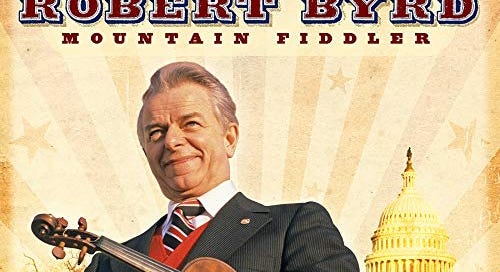“An equal numbers of senators from each state, regardless of the state’s population size: Who came up with this crap?”
Like many other liberals—here meaning New Dealish social-contract welfare-state types —I don’t like the features of our national government that are antidemocratic by design. But I guess I go farther than some: I have a fair amount of skepticism about the origins and purpose of having a Senate at all, let alone the body’s “equal suffrage” of the states, as required by the Constitution.
Quick refresher. The founders’ idea was to place a check on the House of Representatives, which was representative of the majority of the nation's qualified voters, by creating a smaller, “upper” house that was not representative at all, and was thus narrowly and forcefully representative of the minority, by which the founders meant the rich. As every schoolchild used to know, our founders sought balance in government, which to the founders meant “keeping the advantages all on our side.” Any bill emerging from the lower house that might tend to erode the privileges of the small group that had traditionally ruled American society was thus to be obstructed by an upper house—a relationship inspired by that of Commons and Lords in British government. Just as lords were unelected, the idea was to make the U.S. Senate unelected too, at least unelected by the people.
Not that the House of Representatives itself was to be very representative or democratic either. Most states allowed only free white males of sufficient property to vote or hold office. The House was kept relatively small anyway. And there were many other checks against empowering the actual majority of citizens that today we might call labor.
Still, you can’t be too careful. Hence the Senate.
The founders’ compromise, when creating the Senate, was not to fill it via heredity, as in the British upper house, or otherwise make the positions lifelong, but to have each state legislature appoint two members to serve for six years. In effect, then, the Senate was really set up to do two disparate things: kill anything coming out of the House looking even faintly like democracy; and provide a chamber where state legislatures were represented, and represented equally, thus preserving the old confederation-of-states concept that had prevailed under the Articles of Confederation, when the states' political machines sent instructed delegates to the central body and paid their salaries.
What made that a compromise: a lot of the founders didn’t want it. The whole point of calling the convention—nobody wanted to admit this when the convention was called—was to kill the Articles and put a stake through their heart. Hamilton, for one, did want an unelected upper house, for all the obvious reasons (he even wanted an unelected executive, serving for life). He also wanted to close down the states, as governments, and make them, if anything, regional departments of a single, national government.
He couldn’t close down the states. He did get an unelected upper house. But he could get that house only in a form that had to rankle: the state governments’ enjoying continued representation in the new national government. A kind of mocking vampire of the old confederation that Hamilton hated—in part because, back then, the states' weakness had given labor and democracy some inroads—now absurdly elevated to House-of-Lords-level checking status. (At least the senators were to be paid—like members of the House—by the federal government, and not by their states.)
Hamilton wasn’t alone in his dissatisfaction. James Madison was at that point fully allied with him, as were many others. As dedicated as they were to opposing democracy, founders like Hamilton and Madison would have preferred an upper house more generally elected by the qualified electorate to a house equally representing the states. And the whole dual-role thing made no real sense anyway.
So that’s why we have the “equal suffrage of the Senate,” and it’s the one thing that the Constitution says can’t be amended. So don’t start getting any ideas.
People have been saying recently that the benefit was originally to the slave states. While plenty of “great compromises” were made to benefit those states, and those compromises were fully worked into our founders’ Constitution, the smaller of the northern states that were going off slavery—slowly—liked the equal-suffrage thing too, naturally. Hamilton was antislavery, and the point of any upper house, to him, was to suppress democracy. To state-sovereignty types, the point of this particular upper house, as created for the United States, was to preserve some power for the state legislatures—which for some legislatures equated with dependence on the vile institution—and to suppress democracy. Win-win!
This all got taught for years as an element in an ingenious system of checks and balances that could have been devised only by the collective wisdom of our august founders, but I think it was just an unhappy political compromise. Nobody at the time found much to like about the whole constitutional setup. And they may have been onto something.
Things changed, as you know. In 1913, the people of the states began electing their U.S. senators directly (which in this context might make even less sense!). What persists is the inherently anti-democratic nature of the institution widely known, ever since Strom Thurmond trotted to the men’s room instead of using a bucket in the cloakroom, as the greatest deliberative body in the history of the world.
So, sure, go ahead and make the Senate’s composition better reflect the populations of the states —but wait, no, don’t, because that's unconstitutional!—it would still operate as a gate to be slammed shut on, or only narrowly opened to, policies that liberals like me want, because at the moment, anyway, those policies are also broadly popular, and popularity of that kind scared the hell out of our founders.



